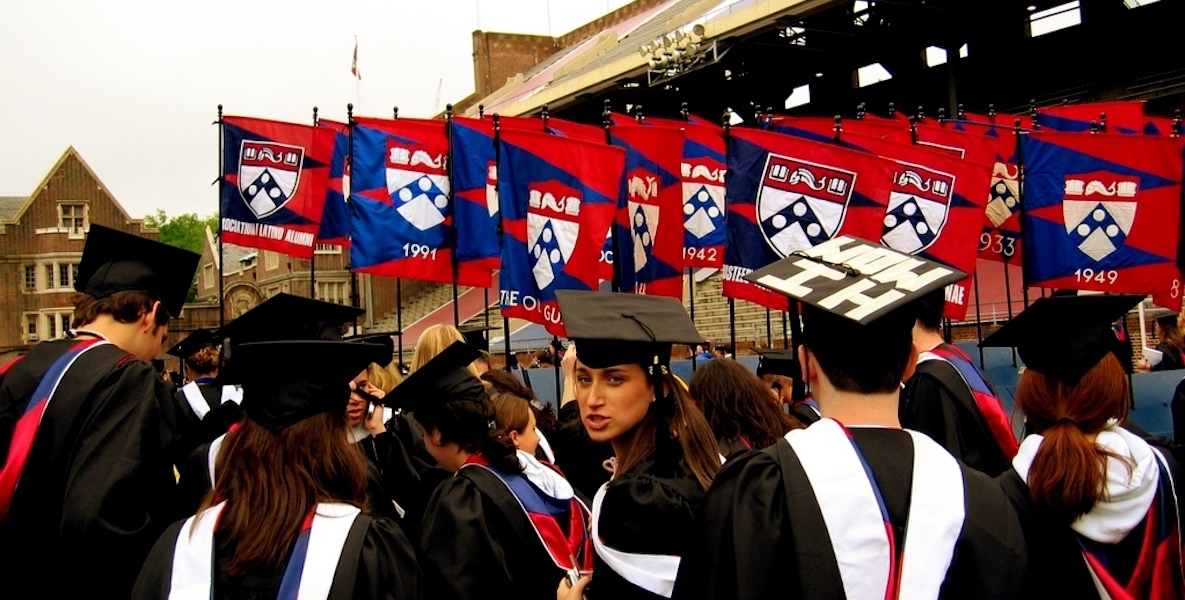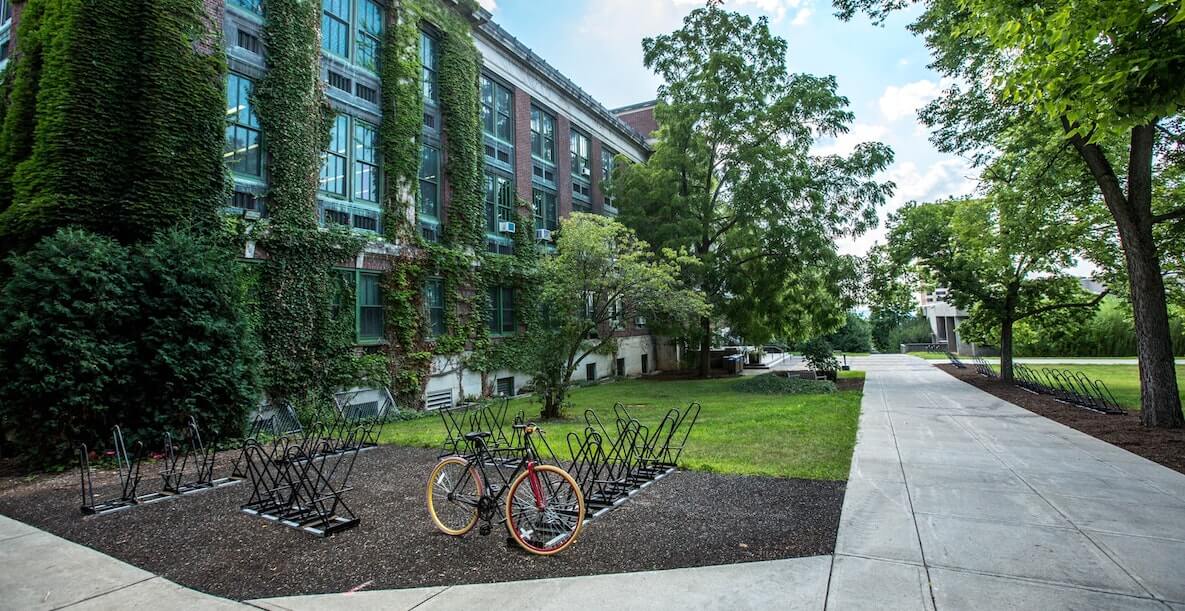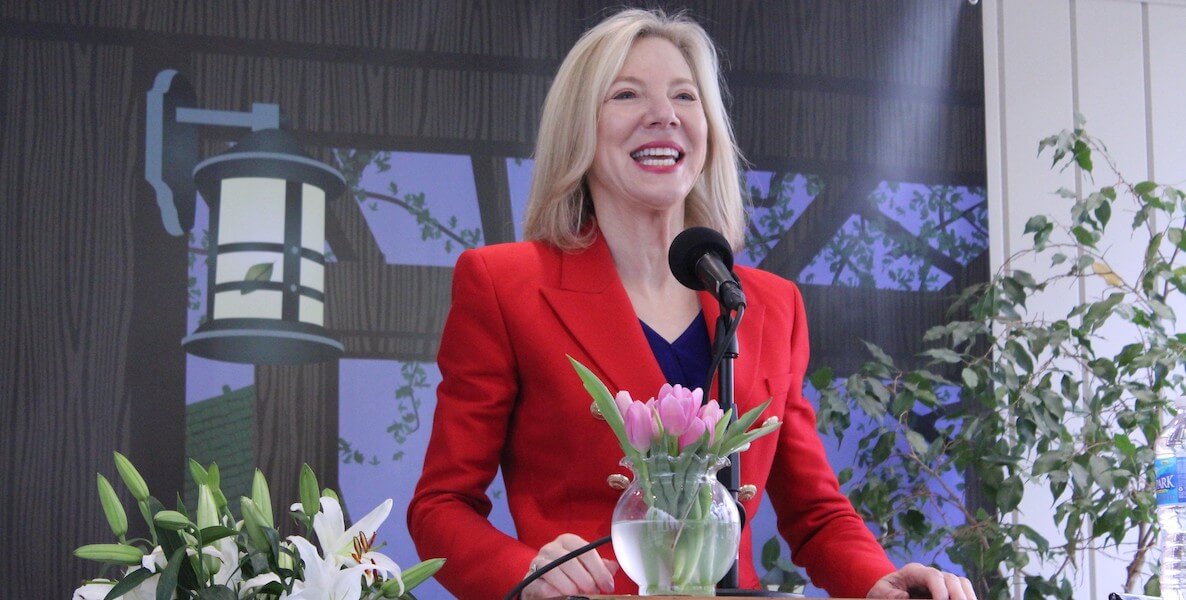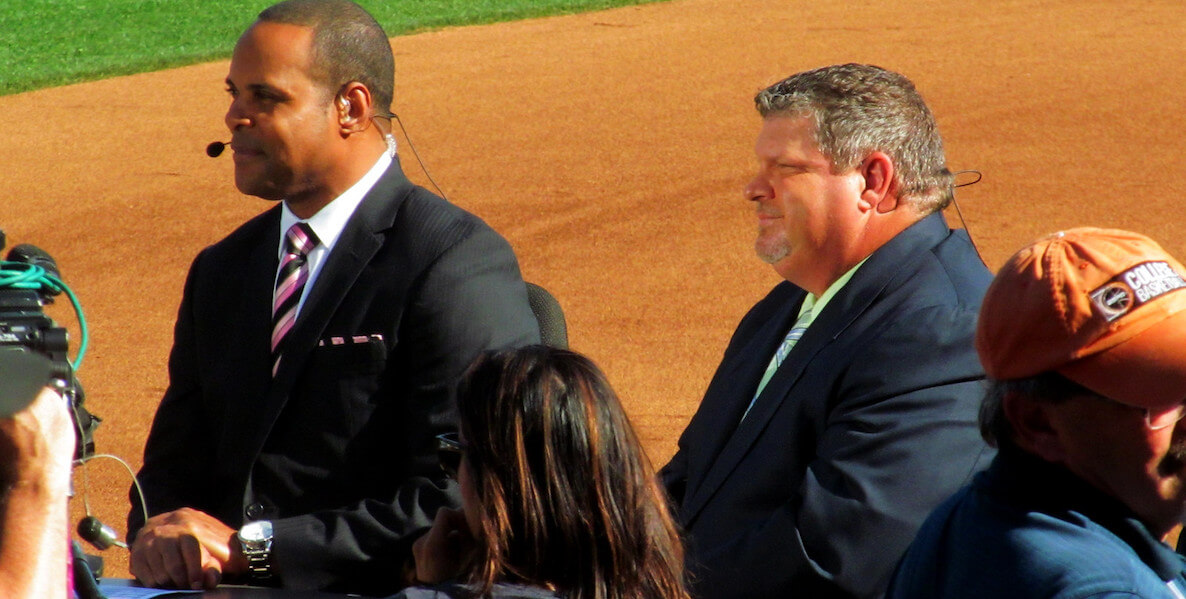On Tuesday evening, July 6, as I watched the Phillies beat the Chicago Cubs (15-10), color commentator John Kruk got into an interesting conversation with play-by-play announcer Tom McCarthy.
Kruk expressed impatience about some of the new rules in baseball and suggested, not entirely tongue-in-cheek, that he himself would make a good baseball commissioner. But Kruk quickly interjected that he lacked a college degree, which would certainly be a qualification for the job.
McCarthy asked questions about Kruk’s college background, and Kruk responded, more in grief than in anger, that his experiences at two community colleges (Potomac State College and Allegany Community College) were depressing. He mentioned a philosophy class assignment to write his opinion on a topic. The professor gave him an F, and all these years later he does not understand why.
MORE ON HIGHER EDUCATION IN PHILADELPHIA
I am usually highly sensitive and ready to be offended when public figures contribute to the negative higher education narrative. But Kruk’s comments struck me differently. He clearly valued higher education because the philosophy professor’s poor grade still bothered him decades later.
As an experienced academic, I could fill in the blanks of what the philosophy professor should have said and done. “Opinion” is an ambiguous term, because the layperson’s general definition—whatever you think—is dissimilar from an academic opinion, which requires evidence and documentation.
Particularly in philosophy, formal argumentation, inductive or deductive, is required. Too many professors, not only in the late 1970s when Kruk was in college, but even now do not engage students in understanding basic definitions of academic vocabulary. They make the unexamined assumption that the right people will know without being told. That supposition leads to systemic exclusionary practices.
This instructional sin discourages students across the board and should be rectified. It is also true that some unenlightened professors are quick to stereotype all athletes as knuckle-heads, exemplifying other prejudices.
The exploitation of college athletes
Kruk’s experience fits into another unfortunate higher-ed paradigm—the exploitation of college athletes. Some colleges and universities fulfill their responsibilities by providing academic and communal support to players, but many do not. In Kruk’s case he recalled that the president of one of his community colleges threatened the baseball players about eliminating the program—and their scholarships—if the team did not win 75 percent of their games.
I’m pleased with the recent Supreme Court decision to expand compensation for college athletes. And I’m even happier that the Court specifies that the additional benefits should be “academic.”
I’d like colleges and universities to set up funds to enable athletes who do not graduate to return and complete their degrees. A minuscule number of university competitors are going to become sports professionals. If they did not recognize the value of a college degree when they were 20, they may be ready for that attainment later in their adult life.
I’m pleased with the recent Supreme Court decision to expand compensation for college athletes. And I’m even happier that the Court specifies that the additional benefits should be “academic.” I’d like colleges and universities to set up funds to enable athletes who do not graduate to return and complete their degrees.
Even some stars may wish to complete their college degrees. Circa 2002, when I was the campus CEO of Arizona State University West, I listened to a surprising message on my cell phone voice mail. It was from Shaquille O’Neal.
At first, I thought it was a prank. But when we checked, we found that it was legitimate. Shaq, at the height of his career with the Los Angeles Lakers, had heard that ASU West was particularly dedicated to educating returning adults. After his own institution, Louisiana State University, had been less than responsive, he called us to see if we might offer online courses that would allow him to complete his bachelor’s degree. We could and would.
When Shaq let LSU know about this arrangement, they quickly decided to accommodate him themselves. I kept Shaq’s voicemail on my cell phone for years afterward and played it to inspire many students.
The enormous human capital potential
 Shaq and Kruk are two highly visible examples to prove my point about the enormous human capital potential in the 36 million adults with some college and no degree. Kruk’s baseball commentary is reflective, analytic, humorous, and on target. He gets an A from this English professor. Yet, his higher education experience was humiliating. I honestly think that he might go back and complete an associate degree or even a bachelor’s degree, if a college or university reached out to him.
Shaq and Kruk are two highly visible examples to prove my point about the enormous human capital potential in the 36 million adults with some college and no degree. Kruk’s baseball commentary is reflective, analytic, humorous, and on target. He gets an A from this English professor. Yet, his higher education experience was humiliating. I honestly think that he might go back and complete an associate degree or even a bachelor’s degree, if a college or university reached out to him.
Just so, many of the 36 million would benefit from a return to higher education, if we can help them overcome the trauma of their earlier experience. Most students drop out because the university has not been serving them well. Colleges and universities should stop blaming the students and initiate teaching and administrative practices that will encourage persistence—perhaps even joyful persistence, since education at its best is deeply satisfying and rewarding.
Everyone reading this article can encourage friends, neighbors, and family members to go back to college and complete degrees. Don’t listen to those who de-value higher education. Our democracy depends on an electorate that can analyze and communicate at the highest level.
It’s time for universities and colleges to give more than lip-service to attracting and educating returning adults. Southern New Hampshire University, under the leadership of its innovative president, Paul LeBlanc, is a leader in this area. But every university and college should be in the adult education business and not only because it’s ethical and the right thing to do.
In these times of decreasing enrollments of traditional-age students, returning adults can save an institution financially. They constitute what Goldie Blumenstyk calls “the population colleges—and the nation—can’t afford to ignore.”
Here are things to encourage Philly-area colleges and universities to do
- Integrate the recruitment and education of returning adults into a strategic action plan
- Respect all students and remember that many are unsophisticated, not stupid. Hold professors to high standards of meeting students where they are.
- Offer course work on a variety of platforms (virtual and in person) to accommodate the schedules of returning adults.
- Work with CAEL (the Council for Adult and Experiential Learning) to benefit from their decades of experience in championing adult learners (cael.org).
- Access CAEL’s help in designing Prior Learning Assessment (PLA), helping students gain credit for achievements outside the traditional classroom (Kruk’s baseball commentary, for example).
- Understand that students grow and mature and may have increased readiness for serious study later in life.
I present a special challenge to the Community College of Philadelphia (CCP) and other colleges and universities in our area to reach out to John Kruk—and to the millions of adults who have some college and no degree.
I know that CCP and most other institutions are already doing some of that. But they must do more. Please keep in mind that many of these “college dropouts” had unnecessarily distressing experiences when they were college students. We must make sure that college life is better and more fulfilling the second time around. We must also reform current educational practices so that more students learn and thrive.
Everyone reading this article can encourage friends, neighbors, and family members to go back to college and complete degrees. Don’t listen to those who devalue higher education. Our democracy depends on an electorate that can analyze and communicate at the highest level.
The Citizen is one of more than 20 news organizations producing Broke in Philly, a collaborative reporting project on solutions to poverty and the city’s push towards economic mobility. Follow the project on Twitter @BrokeInPhilly.
Elaine Maimon, PhD, is author of Leading Academic Change: Vision, Strategy, Transformation. Follow Elaine Maimon on Twitter.
Header image: commentator John Kruk (R) | Photo by rocor / Flickr








